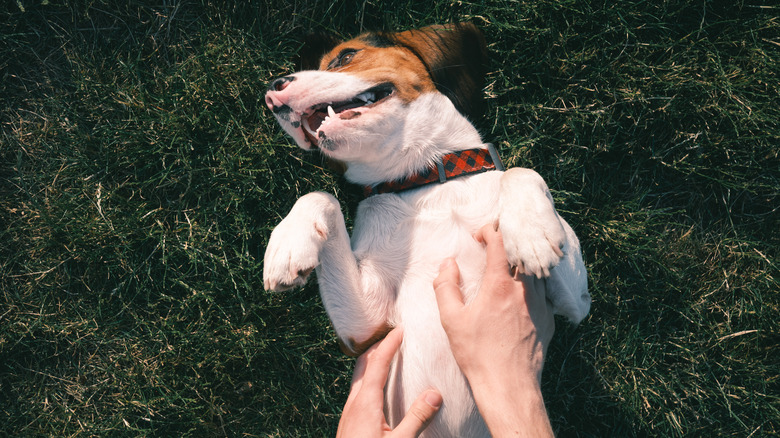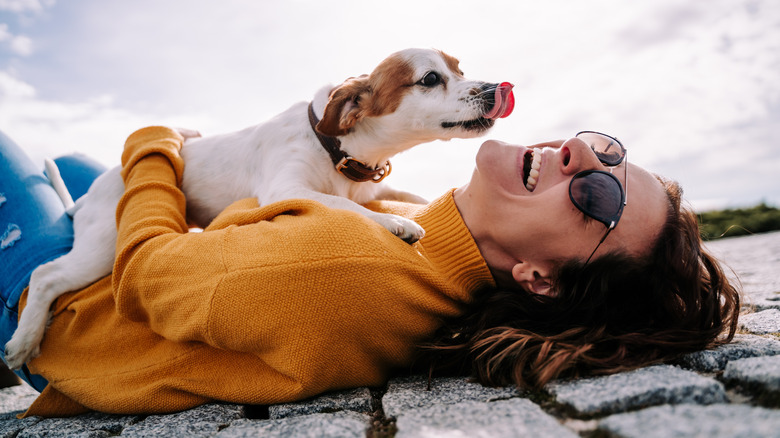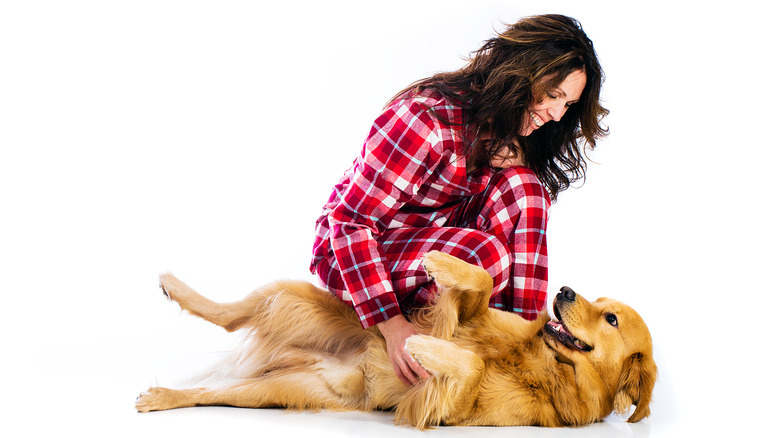The Science Behind Why Dogs Kick When You Give Them A Good Scratch
Dog owners love the bond they share with their furry family members. And there's nothing more satisfying than interacting with a pup and seeing them enjoy every single moment of it.
Whether it's taking your fur baby to the park, scratching behind the ears, rubbing their belly, or playing fetch, there are plenty of ways to have fun with your dog. In return, your dog will provide various responses that can bring joy to the human.
Not everyone fully understands each reaction though and, in fact, many can be misinterpreted. For example, according to the American Kennel Club, a dog wagging its tail doesn't necessarily mean it's happy. It just means the dog is stimulated in some way, but the actual emotion of the dog could be varied.
Yawning is another misinterpreted emotion from dogs. In humans, it typically means we're tired. But for a dog, the American Kennel Club says that could mean your canine is feeling stressed.
Other body language cues
Our dogs are always communicating with us in one form or another and the American Kennel Club recommends looking at your dog's complete body language to understand what they're feeling.
If a dog is licking their lips, it could be because they just finished up a meal. But it could also mean your pup is feeling anxious. So as much as we like to think our pet is telling us they want to lick our face, that isn't necessarily the case.
If a dog looks away from you, it doesn't mean it's ignoring you. Dogs will typically look off to the side if they are feeling stressed about a particular situation. It doesn't mean they're stressed with you though. But there's no reason to take offense if your dog won't make eye contact with you. Take it as an opportunity to comfort your pet.
Not everything a dog does is a sign of stress though. If they have their chest towards the floor with their butt up in the air, that's typically a signal that they're being playful and having a good time. If a dog is squinting, it usually means they're relaxed and calm.
Like humans though, dogs will have involuntary reflexes, and that brings us to dogs kicking their legs when their bellies are rubbed, as noted by Mental Floss.
The scratch reflex
When you go to the doctor, they'll often check your reflexes by gently tapping underneath your knee. This causes your leg to kick forward. This is called the Patellar Reflex according to Biology Online.
Dogs have similar reflexes and we notice it when we rub the tummies of our pups and it sends one of their legs in motion. Hill's, a pet nutrition company, says this is simply called the scratch reflex.
Pups have this reflex in order to protect them from things that may irritate their skin such as fleas and ticks. When certain nerves get stimulated, dogs will scratch in order to rid themselves of the irritant. As Mental Floss notes, veterinarians will test this scratch reflex to make sure it is working as it's supposed to.
But just because the reflex is meant to protect from irritants, as Hill's says, it doesn't mean that your dog doesn't like the belly rubs. The rest of your dog's body language will tell you how they're feeling. If a dog is uninterested in your belly scratches, it might turn away. But if your dog is consistently rolling over on its back and requesting your belly rubs, it means they like it and you don't have to worry about the dog kicking.


